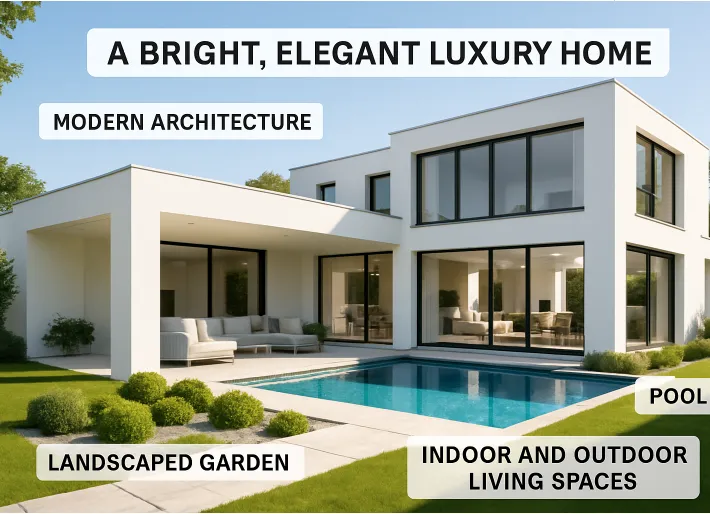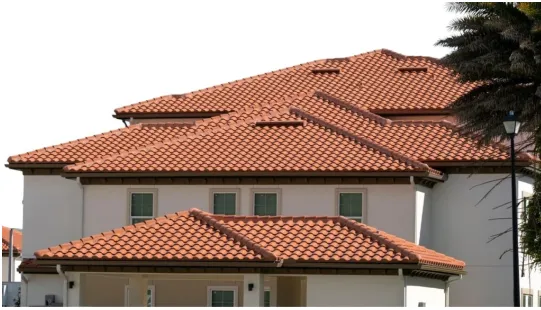Investing in Luxury Homes for Sale: A Smart Move for Future Wealth
Introduction
Luxury real estate stands as a symbol of both prestige and financial security. Over the years, it has garnered a reputation as one of the most reliable paths for building and safeguarding wealth. Unlike traditional real estate, luxury properties often occupy prime locations, boast architectural uniqueness, and include features that are beyond the standard market offer. Navigating opportunities in the high-end property market, however, requires insight into market behavior and the latest investment strategies, as well as a deep understanding of what truly drives value at this elevated tier. For those considering an entry into this sector, partnering with trusted specialists like Vail, CO, real estate experts Viola Realty can provide invaluable guidance throughout this sophisticated process. These experts can help identify emerging neighborhoods, negotiate premium deals, and ensure all transactions meet the high expectations associated with luxury investments.
Also Read: Choosing Residential Roofing Materials for Durability and Curb Appeal
With evolving buyer preferences and regional shifts in demand, the landscape of luxury home investment is continuously reshaped. Technology, lifestyle aspirations, and global economic trends all contribute to these changes, meaning that luxury investors must remain agile and informed. Investors who regularly educate themselves, stay up to date on market developments, and leverage expert support are more likely to make sound, genuinely helpful decisions that yield substantial, long-term rewards in the luxury real estate market. Staying ahead of broader economic cycles and understanding regional variations are both essential, as these factors can impact appreciation rates and rental demand for years to come.
Current Market Trends in Luxury Real Estate
The resilience and continued growth of luxury real estate, even during uncertain economic times, is remarkable. During periods when other types of real estate may stagnate or lose value, luxury homes have consistently demonstrated a capacity to rebound and appreciate over time. In the first five months of 2025, sales of luxury homes surged, driven by appetite from affluent domestic and international buyers, many of whom view prime real estate as a haven for capital during economic upheaval. Industry reports highlight a significant uptick in buyer interest for homes in desirable urban locations as well as in resort-style settings, reflecting broader lifestyle changes such as remote work flexibility and increasing preference for properties with amenities catering to recreation and wellness. This trend is especially evident in popular Canadian markets where houses for sale Ottawa offer exceptional living environments that blend prestige, convenience and long-term value.
Benefits of Investing in Luxury Properties
- Appreciation Potential: Luxury homes are more likely than standard properties to experience rapid value increases, especially in highly sought-after markets. Their unique features and scarcity contribute to their higher appreciation rates. Prime properties in major cities or exclusive vacation destinations tend to outperform during market recoveries, delivering significant capital gains to those who invest early. According to Investopedia, real estate investments often provide long-term appreciation potential, making them a cornerstone for building wealth over time
- Rental Income: These properties often command lucrative rental rates, particularly in destinations popular with executives, celebrities, and tourists seeking privacy and exclusivity. Investors frequently leverage seasonal rentals to capture significant returns, with short-term vacation stays and corporate lets generating income far in excess of traditional long-term leases. Many luxury homes even attract premium renters for events and film productions.
- Portfolio Diversification: High-end real estate diversifies an investor’s financial holdings, reducing volatility exposure from stocks or bonds and fostering greater portfolio stability. Tangible assets like luxury homes serve as a haven during periods of inflation or market instability, providing tangible value and additional borrowing power.
Key Features Attracting Luxury Buyers
Contemporary luxury buyers are discerning, expecting homes that blend technology, comfort, and environmental efficiency. Properties featuring state-of-the-art smart home integrations, energy-saving appliances, and designs that emphasize sustainability consistently draw greater attention and command higher prices. Buyers increasingly request automated lighting, advanced security systems, and touchless technology, demonstrating the premium placed on convenience, security, and customizability. In addition, wellness-oriented amenities such as home spas, fitness centers, and expansive outdoor living spaces have become increasingly desirable, reflecting new post-pandemic lifestyle priorities. These homes also often include entertainment spaces such as private theaters, wine cellars, and poolside pavilions.
Emerging Markets and Investment Opportunities
While cities like New York and Los Angeles remain perennial hotspots, states such as Florida and Texas are attracting unprecedented levels of interest from affluent individuals. These locations combine favorable economic conditions with a high quality of life, drawing buyers from across the globe. Florida, in particular, has benefited from favorable tax laws, robust asset protection, and a picturesque climate, making it an increasingly popular choice for both primary residences and second homes. The surge in demand from high-net-worth buyers has boosted both home values and transaction volumes, creating a highly competitive environment for premium listings. Moreover, international investors are becoming increasingly important, seeking properties as both vacation getaways and long-term lifestyle investments. Many overseas buyers are driven by global uncertainty and a desire for stable investment climates. This trend reflects a broader shift toward global mobility and diversified asset allocation in the luxury market, with buyers seeking out properties in destinations that offer ease of travel, cultural amenities, and political stability.
Financing Options and Market Dynamics
Unlike the broader housing market, the luxury segment frequently involves all-cash purchases. Investors use these swift, straightforward deals to avoid the hurdles of traditional financing and to capitalize on their financial liquidity. According to the National Association of REALTORS, luxury properties often exhibit unique market behaviors and specialized buying considerations that set them apart from standard real estate. This prevalence of cash transactions is a testament to the robust financial position of most luxury real estate buyers and epitomizes the segment’s efficiency and competitiveness. For sellers, all-cash offers mean shorter closing times and a lower risk of deals falling through due to financing issues. Although interest rate fluctuations may affect some high-value transactions, most luxury buyers are insulated from these changes and benefit from greater bargaining power as a result. For those requiring financing, specialized mortgage products are available at competitive rates, sometimes tailored with flexible repayment terms or designed for international clients. Working with a skilled broker ensures financing is arranged efficiently and aligns with the buyer’s specific wealth management strategy.
Risks and Considerations
Luxury property investment does have its challenges. Market volatility can temporarily impact property values, and these homes typically entail higher maintenance and management costs. Unique features such as custom architecture and imported materials can add complexity and expense. In addition, luxury properties can occasionally face illiquidity, especially during wider economic downturns, as the pool of potential buyers is much smaller than that for standard homes. Prospective investors should work closely with real estate professionals, conduct thorough due diligence, and assess local market dynamics to minimize potential risks. Consulting third-party advisors and reviewing current market analytics helps ensure investments are aligned with long-term financial objectives. Mitigating risks through comprehensive insurance, attention to property management, and awareness of local regulations can enhance the investment’s long-term performance and preserve asset value for years to come.
Conclusion
Luxury homes represent an appealing avenue for investors seeking wealth accumulation, preservation, and portfolio diversification. The combination of strong appreciation potential, reliable rental income, and resilience to economic shifts underscores the enduring value of these premium properties. By collaborating with experienced advisors, staying up to date on emerging trends, and strategically aligning investments with financial goals, astute buyers can realize the many rewards that luxury real estate offers. Ultimately, the path to success in the luxury sector comes from knowledge, connections, and an agile approach to changing market conditions—qualities that define the most prosperous investors in today’s competitive landscape.







